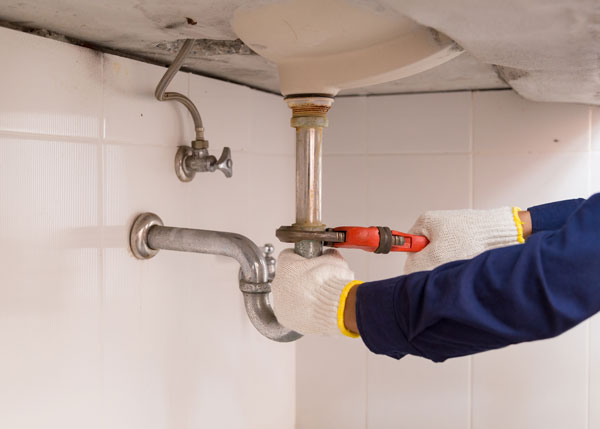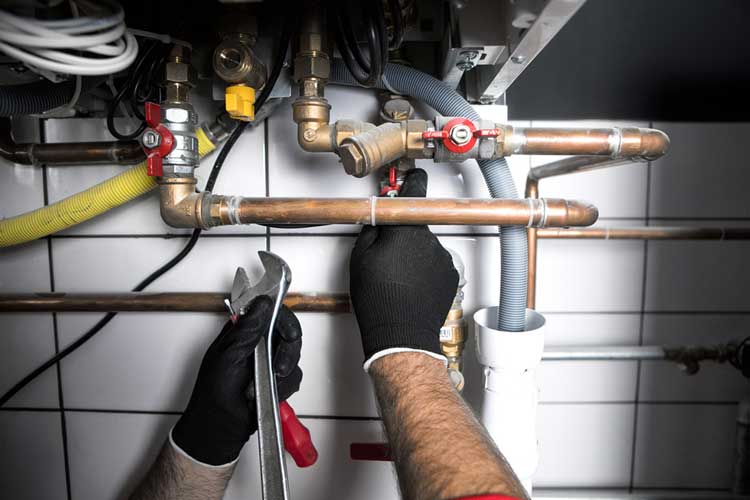All Categories
Featured
It's important to acknowledge the restrictions of Do it yourself abilities and know when it's time to call in an expert. When you require a specialist plumbing, trust the specialists at Sierra to finish the job right. Sierra's skilled plumbing specialists have the knowledge and know-how to deal with every little thing from an easy leaking tap to significant sewer line repair work.
Leaky pipes may be the most common plumbing problem of allor the one we most commonly associate with plumbing technicians, at the very least.
There are several temporary repairs for leaking pipelines, but eventually, you'll require to call a plumbing technician and have them deal with the concern, particularly if the pipeline is tough to gain access to. Pipeline leak repair work cost $500 generally, yet this can depend on the kind of leak, the type of pipeline, and where the pipeline lies.
Pipelines can burst for numerous factors, typically pertaining to pressure. These factors include: Severe variations in temperature (frozen pipes are an usual forerunner to pipeline ruptureds)Stress from expanding tree rootsExtensive blockages that create a build-up of pressure over timeOld age or wear and tear with corrosion or deterioration If a pipeline bursts in your home, shut down the water immediately to restrict the damage.
Should I Do My Own Plumbing?
Depending on the level of the water damages, you'll likely require to hire a water damage restoration service near you to make sure there is no long-lasting damages to walls, floorings, and ceilings and to stop mold and mildew and mold growth. You'll also need to replace the burst pipeline before transforming your water back on.

6/ 13 Andrii Medvediuk/Getty Images Filtering your water is good for your wellness, and as Bux points out, it drastically boosts the preference. "We had customers whose faucet water was cloudy because of debris in their old pipelines.
This is often since among the RO system lines has actually ruptured or simply dropped out of the real estate that keeps it secured. Examining on these lines regularly will help to alleviate the chances of this occurring." 7/ 13 Household Handyman The hot water heater is a lonesome servant that rarely obtains the interest it deserves.
You might hear popping noises, indicating a hefty sediment layer under. In that case, offer it a total flush. Every five years or so, you should change the anode rod. Its work is to attract ions that would certainly rust the steel cellular lining of the tank if it weren't there, and it normally uses out.
Is Diy Plumbing Safe?
If you go on getaway, shut down the primary water shutoff. In this way, if a pipe bursts, it will not cause a flooding.
If your neighbors have water and you do not, you'll desire a plumbing professional to right away situate and resolve the trouble. If your water firm hasn't turned off the water for repairs, there are a number of possible troubles that can lead to no water moving inside your home including an underground water main break, severe clog, or a damaged pipe someplace in your pipes system.

The system may require maintenance, or maybe time for a substitute. Repairs to warm water heating systems ought to be done by licensed plumbings. They have the training and experience to collaborate with both water and gas line connections and can safely make repair services or set up a brand-new hot water heater if essential.
Several pipes are located inside walls, ceilings and floorings, which makes situating and repairing a ruptured pipe testing for DIYers. As quickly as you discover a burst pipe, shut off the water main and call a plumbing. A certified plumbing technician will have the right tools and training to situate a ruptured pipe and make lasting fixings.
If you try to start the thawing process on your own, there are several preventative measures to take. A ruptured pipe can create extensive water damages so it's important to thaw pipelines gradually and carefully. Defrosting icy pipelines is ideal delegated an expert since repairs are frequently required. Low water stress in one fixture, such as a faucet, might be a clogged up aerator.
Should I Hire A Plumber?

A properly skilled service technician can utilize a video camera probe to look deep inside pipelines and drains to locate blockages and blockages. Tree roots invading underground drain pipes are a common reason for obstructions. This situation requires expert services to effectively deal with. If you have an overflowing commode, initially shut off the water valve.
Latest Posts
Emergency Plumbing nearby ,
Emergency Plumbing
Plumbing